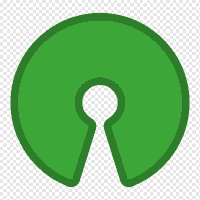
Nitter
- 0 ratings

A alternative front end to twitter.
Self-host this app for $0.99/mo only!
Depends on a proprietary service outside the user's control
A free and open source alternative Twitter front-end focused on privacy and performance. \ Inspired by the Invidious project.
Liberapay: https://liberapay.com/zedeus \ Patreon: https://patreon.com/nitter \ BTC: bc1qp7q4qz0fgfvftm5hwz3vy284nue6jedt44kxya \ ETH: 0x66d84bc3fd031b62857ad18c62f1ba072b011925 \ LTC: ltc1qhsz5nxw6jw9rdtw9qssjeq2h8hqk2f85rdgpkr \ XMR: 42hKayRoEAw4D6G6t8mQHPJHQcXqofjFuVfavqKeNMNUZfeJLJAcNU19i1bGdDvcdN6romiSscWGWJCczFLe9RFhM3d1zpL
The wiki contains a list of instances and browser extensions maintained by the community.
It's impossible to use Twitter without JavaScript enabled. For privacy-minded folks, preventing JavaScript analytics and IP-based tracking is important, but apart from using a VPN and uBlock/uMatrix, it's impossible. Despite being behind a VPN and using heavy-duty adblockers, you can get accurately tracked with your browser's fingerprint, no JavaScript required. This all became particularly important after Twitter removed the ability for users to control whether their data gets sent to advertisers.
Using an instance of Nitter (hosted on a VPS for example), you can browse Twitter without JavaScript while retaining your privacy. In addition to respecting your privacy, Nitter is on average around 15 times lighter than Twitter, and in most cases serves pages faster (eg. timelines load 2-4x faster).
In the future a simple account system will be added that lets you follow Twitter users, allowing you to have a clean chronological timeline without needing a Twitter account.

To compile Nitter you need a Nim installation, see nim-lang.org for details. It is possible to install it system-wide or in the user directory you create below.
To compile the scss files, you need to install libsass. On Ubuntu and Debian,
you can use libsass-dev.
Redis is required for caching and in the future for account info. It should be
available on most distros as redis or redis-server (Ubuntu/Debian).
Running it with the default config is fine, Nitter's default config is set to
use the default Redis port and localhost.
Here's how to create a nitter user, clone the repo, and build the project
along with the scss and md files.
# useradd -m nitter
# su nitter
$ git clone https://github.com/zedeus/nitter
$ cd nitter
$ nimble build -d:release
$ nimble scss
$ nimble md
$ cp nitter.example.conf nitter.confSet your hostname, port, HMAC key, https (must be correct for cookies), and
Redis info in nitter.conf. To run Redis, either run
redis-server --daemonize yes, or systemctl enable --now redis (or
redis-server depending on the distro). Run Nitter by executing ./nitter or
using the systemd service below. You should run Nitter behind a reverse proxy
such as Nginx or
Apache for security and
performance reasons.
To run Nitter with Docker, you'll need to install and run Redis separately before you can run the container. See below for how to also run Redis using Docker.
To build and run Nitter in Docker:
docker build -t nitter:latest .
docker run -v $(pwd)/nitter.conf:/src/nitter.conf -d --network host nitter:latestA prebuilt Docker image is provided as well:
docker run -v $(pwd)/nitter.conf:/src/nitter.conf -d --network host zedeus/nitter:latestUsing docker-compose to run both Nitter and Redis as different containers:
Change redisHost from localhost to nitter-redis in nitter.conf, then run:
docker-compose up -dNote the Docker commands expect a nitter.conf file in the directory you run
them.
To run Nitter via systemd you can use this service file:
[Unit]
Description=Nitter (An alternative Twitter front-end)
After=syslog.target
After=network.target
[Service]
Type=simple
# set user and group
User=nitter
Group=nitter
# configure location
WorkingDirectory=/home/nitter/nitter
ExecStart=/home/nitter/nitter/nitter
Restart=always
RestartSec=15
[Install]
WantedBy=multi-user.targetThen enable and run the service:
systemctl enable --now nitter.service
Nitter currently prints some errors to stdout, and there is no real logging
implemented. If you're running Nitter with systemd, you can check stdout like
this: journalctl -u nitter.service (add --follow to see just the last 15
lines). If you're running the Docker image, you can do this:
docker logs --follow *nitter container id*
Feel free to join our Matrix channel. You can email me at zedeus@pm.me if you wish to contact me personally.
Please login to review this project.
No reviews for this project yet.
Federated microblogging server, an alternative to GNU socia…
Q&A-based community knowledge-sharing software.
Free, professional grade software package that allows you t…
Comments (0)
Please login to join the discussion on this project.